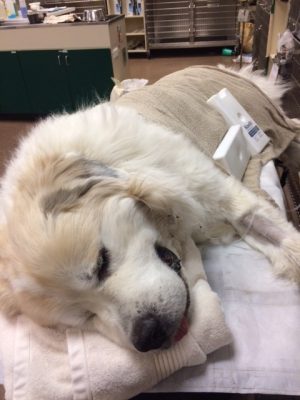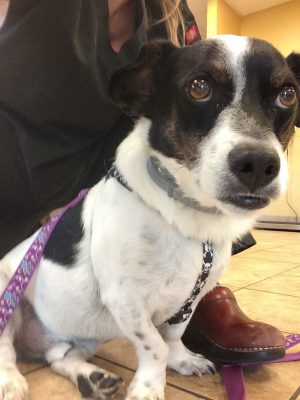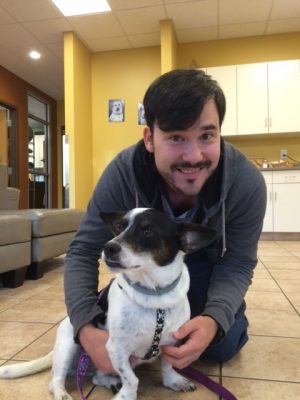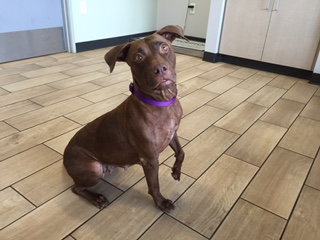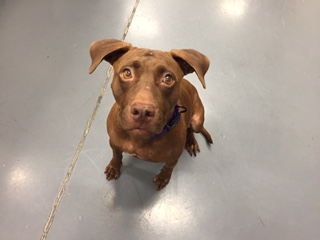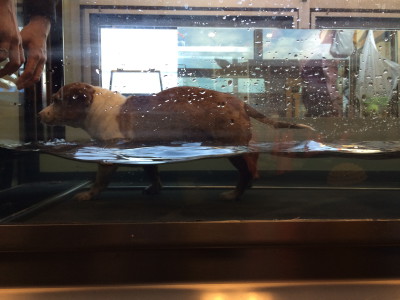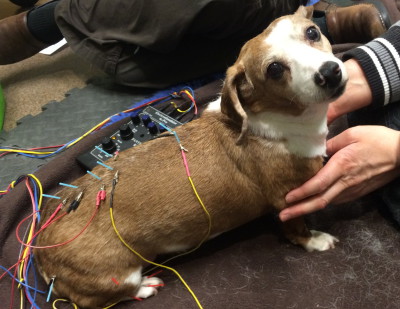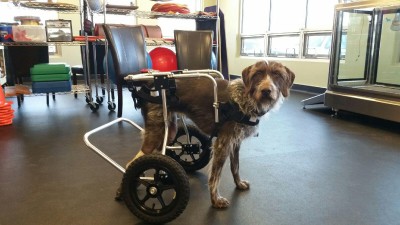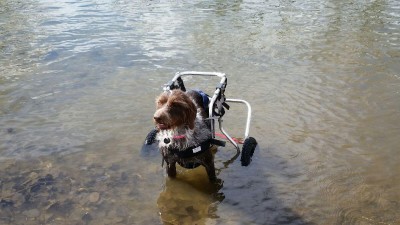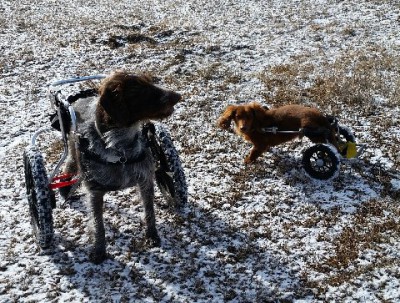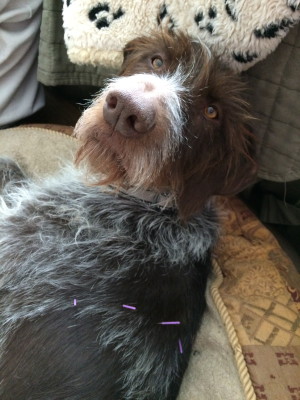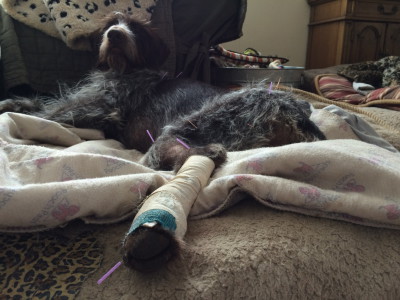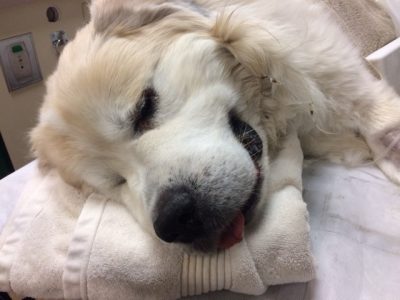 Meet Freddy, an older Great Pyrenees. He came into the Animal ER laterally recumbent (unable to sit or stand up) and in distress. He was hot, pale, and his belly was distended. He had very low blood pressure and was in shock. A quick X-ray revealed a gastric dilatation and volvulus (GDV), which means that his stomach had rotated 180 degrees and air was no longer able to escape through his esophagus (wind pipe). When this happens, the stomach fills with a dangerous amount of gas, which in turn puts pressure on the great vessels of the body. When these vessels are compressed, bloodflow to all the major organs is compromised and causes the patient to go into shock. Also, while the stomach is twisted, the stomach itself loses bloodflow and the tissue can begin to die. A GDV is life-threatening and requires immediate emergency surgery to save the patient’s life.
Meet Freddy, an older Great Pyrenees. He came into the Animal ER laterally recumbent (unable to sit or stand up) and in distress. He was hot, pale, and his belly was distended. He had very low blood pressure and was in shock. A quick X-ray revealed a gastric dilatation and volvulus (GDV), which means that his stomach had rotated 180 degrees and air was no longer able to escape through his esophagus (wind pipe). When this happens, the stomach fills with a dangerous amount of gas, which in turn puts pressure on the great vessels of the body. When these vessels are compressed, bloodflow to all the major organs is compromised and causes the patient to go into shock. Also, while the stomach is twisted, the stomach itself loses bloodflow and the tissue can begin to die. A GDV is life-threatening and requires immediate emergency surgery to save the patient’s life.
Currently, we do not know the cause of a GDV. Although we do know that older, male, large breed dogs are at the highest risk for this condition. A GDV comes on suddenly and typical signs include retching without productive vomiting, pale gums, distended belly, and collapse. A GDV is a true emergency and without immediate care, the patient will die.
Freddy’s owners were committed to saving his life, even though it would be an incredible financial hardship for them. The cost for Freddy to undergo surgery was even higher than typical because he is a giant breed dog and would require higher volumes of any drug he received. Also, being an older guy, it would be likely that he would have a longer recovery and hospital stay. Both the Lupine Fund and the hospital chipped in to help the owners make Freddy’s surgery possible. Freddy recovered a week after his surgery and was discharged to his family.
